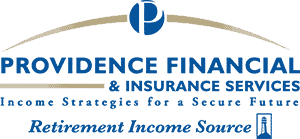When it comes to planning and saving for retirement, it’s not uncommon to feel overwhelmed by the mere thought of the notion. While we all want to bask in the glory of a comfortable golden era, getting there does require an investment of time and, of course, money. But the road to retirement is long and paved with detours.
Fortunately, most working Americans already have access to an easy-to-understand and even easier to buy retirement product, the staple of almost every employer’s defined contribution plan — the 401(k). Appropriate at nearly every age and every point in your career, investing in a 401(k) is a smart way either to begin or to supplement your retirement savings plan. Below are five simple reasons why you should absolutely take advantage of that company-offered 401(k).
1. It’s one of the easiest and fastest investments to purchase
Setting up your 401(k) is one of the easiest investment experiences you’re likely to have. This is because in most cases, you simply ask your company’s human resources guru to enroll you in the company’s defined contribution plan. Some companies require you to have worked for the organization for a certain period of time before you’re eligible to participate in the company 401(k), but once you’re ready to contribute, all you need to do is tell HR how much you’d like to contribute and how you’d like them to invest your funds — they handle all the details and take the contribution from your paycheck.
2. Your savings accrue tax deferred
One extraordinarily appealing aspect to 401(k)s is that all the money you invest grows at a compounded, tax-deferred rate. You continue to earn tax-advantaged benefits until you start withdrawing your funds, at which point you must pay taxes on that money. Furthermore, anything you contribute to your 401(k) in a given tax year can be taken as a deduction, lowering your taxable income. And because of its tax-deferredstatus, increasing your contributions even by a little bit can lead to dramatic 401(k) growth over time.
3. You can choose how much you want to invest, and how you’d like it invested
With a 401(k), you get to decide how much money you can contribute to your plan, not your employer or the company managing your funds. There is, however, a yearly maximum to what you can contribute, but it’s still more than how much you can put into an IRA. Your annual maximum contribution depends on your age: this year’s maximum is $17,000 if you are younger than age 50, and $22,500 if you’re age 50 or older.
As for the investment itself, your employer uses either a brokerage firm, insurance or mutual fund company to manage your retirement plan, but you get to choose how that company invests your money based on your risk tolerance and investment preferences. Most 401(k) plans allow you to choose from at least five different mutual funds, bonds or money markets representing different market sectors and degrees of risk. A few organizations even allow their employees to add company stock to their 401(k)s.
4. If your company matches a portion of your contributions, it’s like a free bonus chech
Many companies offer an incentive to encourage their employees to save for retirement by way of matching a portion of your own contribution to your 401(k) plan. The match can vary, but 50 cents to the dollar is a common employer contribution. Employers also have a set maximum of how much they’ll match your contribution, basing it either on a percentage of your annual salary, generally from three percent to six percent, or, less commonly, on a predetermined dollar amount. This company match is like a bonus, for all intents and purposes, so make every attempt to contribute what’s necessary to get the highest match possible.
5. A simple way to make saving for retirement automatic
Once you’ve elected your contribution amount and investment options and communicated those choices to your HR department, that’s pretty much all you have to do. After that, your employer automatically deducts the percentage of income you’ve allocated to your 401(k) directly from your paycheck. You’ll most likely receive quarterly earnings statements from your employer’s plan manager, and some companies also make this information available to employees on a secure website.
When all is said and done, you’ll have a solidly structured and properly managed 401(k) working quietly yet constantly in the background, generating retirement savings.

